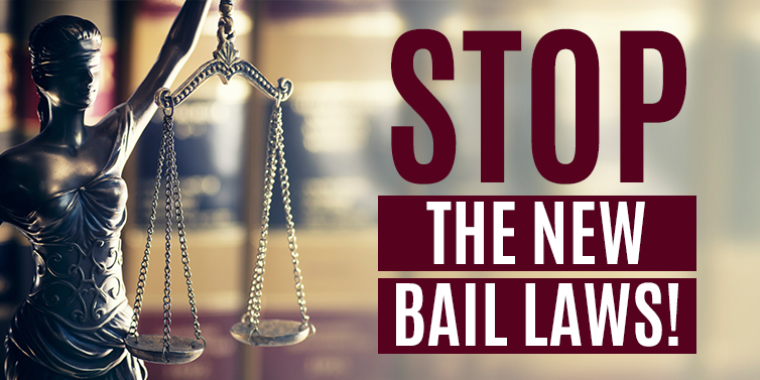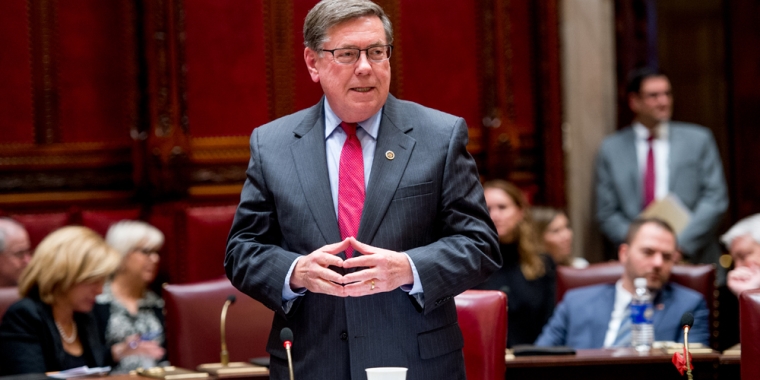
Make Your Vote Count
James L. Seward
June 17, 2010
Our great nation has evolved in many ways since our founding fathers first ratified the United States Constitution in 1787. Cultural shifts, economic changes and technological transformations have all helped shape our country, creating the land we live in and love.
While so many of the tenets this country was founded on continue to serve us well there is one that is currently being reexamined – the Electoral College. As outlined under Article II of the Constitution, the manner in which the president and vice president of the United States are elected, utilizing what has become known as the Electoral College, is ready for an overhaul.
Currently, like 47 other states, New York uses the winner take all method in which the winner of the popular vote in New York state receives all of our electoral votes. As a result, our presidential election turns out to be 48 separate state elections, with only a few battleground states being relevant. Based on current voter enrollment, New York is not one of those battleground states.
Twenty-first century politics has created a system in which candidates are provided with voting histories, demographic analysis, and scores of other types of information that shapes how campaign time and money is spent. Certain states may be deemed "red", or historically in support of Republican candidates or "blue", meaning historically in support of Democratic candidates. In addition, candidates for president have spent a majority of their time campaigning in battleground states that research has shown to be evenly divided and a potential victory for either candidate, while depending on the votes from "red" or "blue" states without working to earn them.
One only has to look to the 2008 presidential campaign for a clear example of what this means. The major party candidates received almost $90 million in political contributions from New York but spent very little time or money in the Empire State where 31 electoral votes were at stake. In stark contrast, New Hampshire, a small state with only 4 electoral votes, received $14 million in campaign spending. Candidates spent quite a deal of time in New Hampshire as well, garnering media coverage for the state and boosting retail and tourism business.
Research by National Popular Vote, a non-profit corporation whose specific purpose is to study, analyze and educate the public regarding the proposal offers these additional points:
• Presidential candidates concentrate over two-thirds of their advertising money and campaign visits in just five very close states, and over 99% of their advertising money in just 16 battleground states;
• The spectator states in presidential elections include 9 of the nation's 13 most populous ones (California, Texas, New York, Illinois, New Jersey, North Carolina, Georgia, Massachusetts, and Virginia), 12 of the 13 least populous states (all but New Hampshire), and a majority of the other states;
• It's not only the big states. Idaho, Montana, Wyoming, North Dakota, South Dakota, and Alaska regularly vote Republican, and Rhode Island, Delaware, Hawaii, Vermont, Maine, and DC regularly vote Democratic.
In order to trigger a national popular vote enough states (totaling 270 electoral votes) must join together. To date, five states possessing nearly a quarter of the needed electoral votes have approved the measure. In three separate polls New Yorkers expressed overwhelming support for the measure, with 79 percent saying they would back its implementation.
Recently, the senate passed the National Popular Vote bill (senate bill 2286), which passed the state senate by a vote of 52-7. If the state assembly and the governor sign on as well, New York can be part of an important movement that would guarantee the presidency to the candidate who receives the most popular votes in all 50 states (and the District of Columbia).
The National Popular Vote bill will energize our electoral system and ensure that each and every voter is truly engaged on Election Day. I look forward to the exciting national change.
Share this Article or Press Release
Newsroom
Go to NewsroomJustice for Gillian
November 25, 2019

Seward Calls for Halt of New Bail Laws
November 20, 2019

Statement from Senator Seward
November 6, 2019

